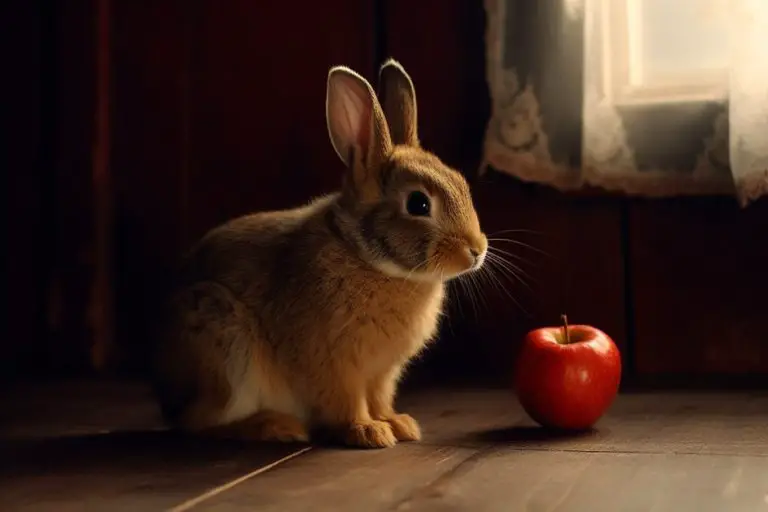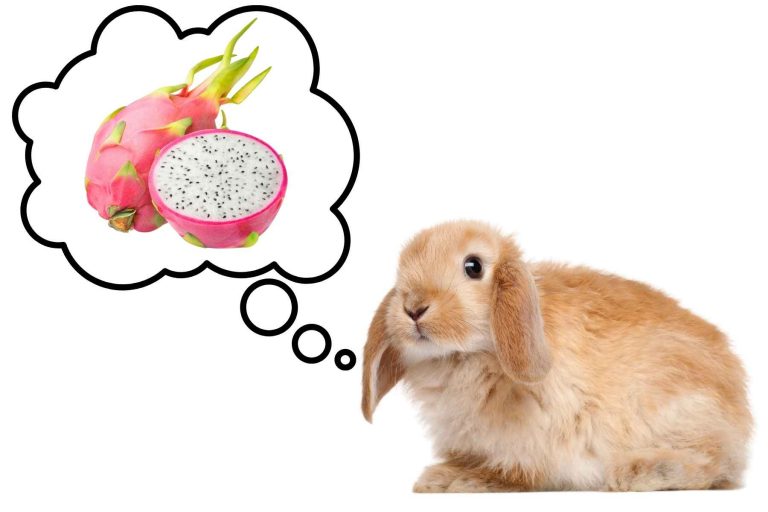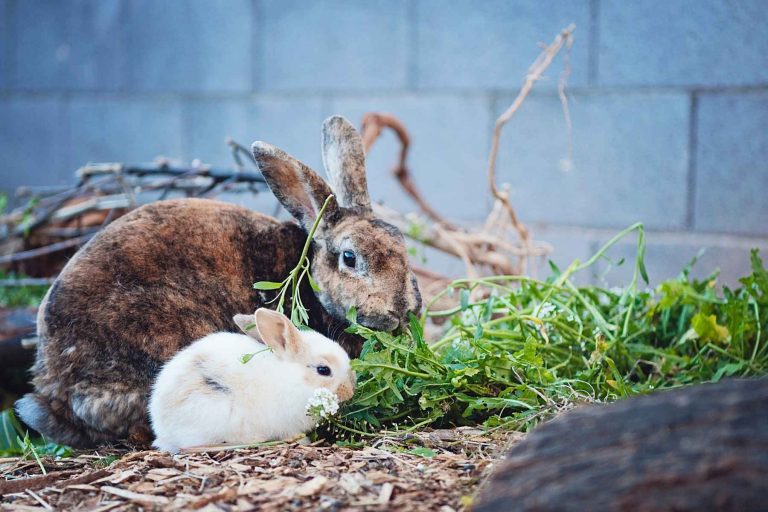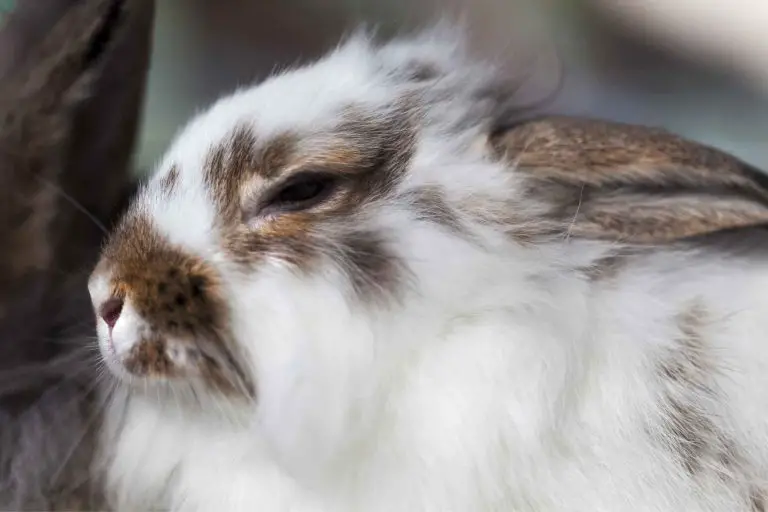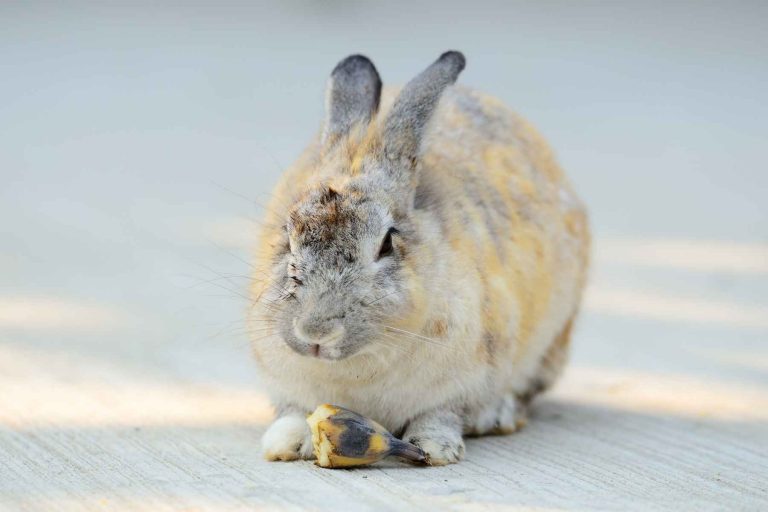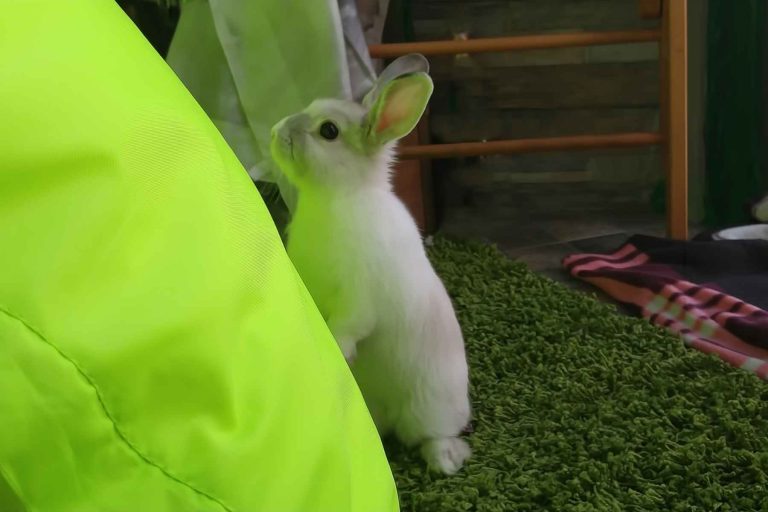Can Rabbits Eat Cucumber? (What About Skin And Seeds?)
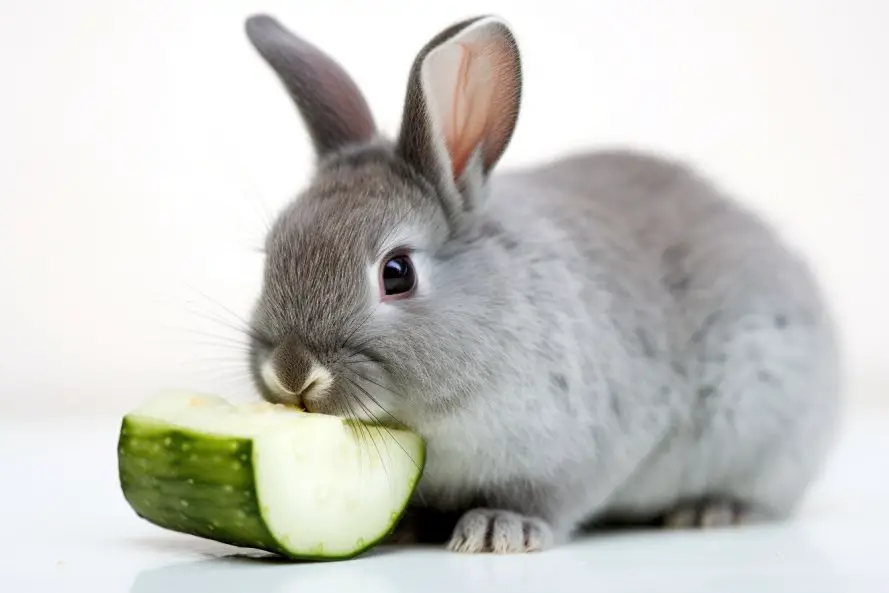
Rabbits, as delightful and adorable pets, require a well-balanced and healthy diet to maintain their overall well-being. A major component of their diet is fresh vegetables, which provide essential vitamins and minerals, promoting digestion and overall health. One common question rabbit owners may have is, “Can rabbits eat cucumber?”
Cucumbers, which consist mostly of water and provide a hydrating treat, can be a suitable addition to a rabbit’s diet. These watery vegetables are not harmful to rabbits, and some may enjoy the refreshing taste. However, it is important to remember that cucumbers should be given in moderation and as part of a varied diet to ensure proper nutrition.
When introducing cucumbers to your rabbit’s diet, it is crucial to start with small amounts to prevent any digestive discomfort. Gradually increase the portion size while monitoring your rabbit’s reaction to these new treats. Always combine the cucumber consumption with a balance of hay, leafy greens, and other vegetables to maintain a well-rounded and healthy diet for your furry companion.
Can Rabbits Eat Cucumber
Safe for Consumption
Yes, rabbits can eat cucumber. It is a safe and healthy addition to their diet. Cucumber is non-toxic and does not pose any risk to rabbits when consumed in moderation. However, it’s essential to introduce cucumbers slowly and watch for any signs of digestive issues.
Nutrient Content
Cucumbers have a low nutritional value, but they do provide some essential nutrients that can be beneficial for rabbits. These nutrients include:
- Vitamins: Cucumbers contain vitamin C and K, which help support a healthy immune system and blood clotting.
- Minerals: They also provide small amounts of potassium, magnesium, and calcium, which are important for healthy bones and muscles.
Although cucumbers shouldn’t be the main source of nutrients, including them in small amounts can offer some nutritional benefits to rabbits.
Hydration Benefits
Cucumbers are an excellent source of water, with a water content of around 95%. This makes them a great option for keeping rabbits hydrated, especially during hot weather or when they are reluctant to drink from a water bottle. Including cucumber in their diet can help maintain a good hydration level, ensuring a healthy and happy rabbit.
Health Benefits of Cucumbers for Rabbits
Vitamins and Minerals
Cucumbers provide rabbits with essential vitamins and minerals that support their overall health. They are particularly high in:
- Vitamin C: An antioxidant that aids in immune system support and collagen synthesis
- Vitamin K: Essential for blood clotting and bone health
- Potassium: Important for maintaining proper fluid balance, muscle function, and nerve signaling
- Vitamin A: Contributes to eye health, immune function, and cellular growth
Additionally, cucumbers contain trace amounts of other nutrients like Vitamin B and antioxidants.
Fiber Content
Cucumbers have a moderate level of dietary fiber, essential for maintaining healthy digestion in rabbits. It helps in promoting regular bowel movements and preventing gastrointestinal issues such as diarrhea. Although the fiber content in cucumbers is lower than in some vegetables commonly fed to rabbits (e.g., leafy greens), it still provides a reasonable source of roughage.
Low Calories
Cucumbers are low in calories, making them an ideal snack for rabbits. Their high water content and low calorie density help prevent unnecessary weight gain, while still providing hydration and nutrients. This makes cucumbers a healthy addition to the diet of rabbits when fed in moderation, along with other fruits and vegetables.
Feeding Cucumbers to Rabbits
Cucumbers can be a refreshing and hydrating snack for rabbits due to their low caloric content and high water content. When feeding cucumbers to rabbits, there are a few precautions to take and methods to follow to ensure their safety and overall well-being.
Peeling and Slicing
Before feeding cucumber to your rabbit, be aware of the following things:
- Thoroughly wash the cucumber to remove any lingering pesticides or residue from the surface.
- As long as the cucumber skin has been washed, it’s totally safe to give them a little nibble.
- Rabbits dig cucumber seeds. They’re a powerhouse of nutrition that’s often overlooked. In fact, cucumber seeds are one of the most nutritious parts of the fruit, along with the skin.
- Slice the cucumber into thin slices to make it easy for your rabbit to chew.
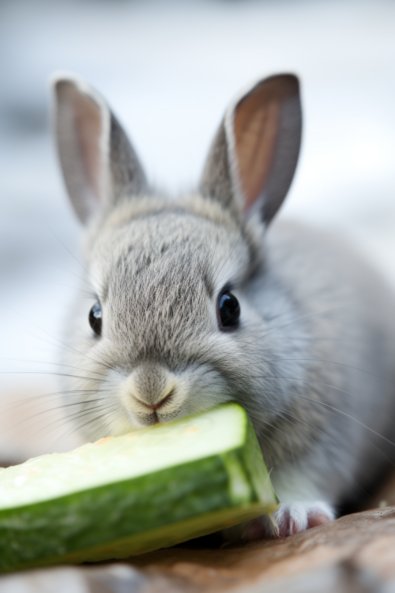
Moderation and Portion Control
While cucumbers can be a healthy and low-calorie snack for rabbits, it’s essential to feed them in moderation. Excessive consumption of cucumbers may cause an imbalance in their diet and could potentially lead to digestive issues or diarrhea.
For your furry friend’s health, it’s best to limit cucumber to 2-3 servings per week. A small slice, just millimeters thick, is enough for one serving.
To keep your rabbit happy and healthy, remember to balance their diet with variety. Cucumber can be a refreshing treat, but it should not be the main course.
To ensure that your rabbit has a balanced diet, be mindful of the following:
- The primary source of food for rabbits should be hay, making up around 80% of their diet.
- Limit their fruit intake due to sugar content, which can be harmful to your rabbit’s digestive system.
- Pellets and commercial rabbit food should also make up a small portion of their diet.
Combining with Other Vegetables
When feeding cucumbers to rabbits, it’s a good idea to combine them with other vegetables to provide a balanced and more nutritious meal. A few vegetables that can be mixed with cucumber are:
- Celery: Similar to cucumber, it has high water content and is low in calories.
- Ripe tomatoes: Can be a good source of vitamins, but avoid the leaves as they are toxic to rabbits.
- Carrots: Can be fed in moderation due to their sugar content, but make sure to remove any greens.
Always choose organic vegetables when possible to minimize pesticide exposure.
In conclusion, cucumbers can be a healthy and hydrating snack for rabbits when fed properly. Ensuring proper preparation, portion control, and pairing with other vegetables will provide your rabbit with a balanced and nutritious diet while reducing the risk of potential health issues.
Potential Dangers of Feeding Cucumbers to Rabbits
Cucurbitacin Poisoning
Rabbits can indeed consume cucumbers, but feeding them too much or too often may pose risks. For example, cucumbers contain cucurbitacin, a compound that can be toxic to rabbits. Cucurbitacin is more concentrated in cucumber plants’ leaves, stems, and flowers than in the fruit itself. So, make sure to provide only cucumber flesh, avoiding plants and cucumber flowers.
Although North American and English cucumbers generally have low cucurbitacin levels, be cautious and monitor your rabbit for any signs of stomach upset or poisoning after consuming cucumbers.
Digestive Issues
Rabbits have sensitive digestive systems, and while cucumbers are high in fiber, they provide little nutritional value. For a healthy, balanced diet, rabbits should primarily consume leafy greens and small amounts of fresh vegetables, such as carrots and broccoli.
Cucumbers are low in protein, magnesium, and oxalic acid. However, excessive cucumber consumption may lead to digestive issues, such as diarrhea or reduced cecotrope production, which are essential for a rabbit’s gut health.
It’s important not to replace leafy greens with cucumbers in your rabbit’s diet. A rabbit should consume about 1 to 2 cups of leafy greens per day, depending on its size.
Conclusion
In conclusion, rabbits can safely consume cucumbers in moderation as a treat. Cucumbers provide hydration and some essential nutrients, but they should not make up the majority of a rabbit’s diet. To ensure proper nutrition, rabbits should primarily consume:
- Hay (such as Timothy or Meadow hay)
- Fresh vegetables (leafy greens)
- Limited quantities of fruits and non-leafy vegetables, including cucumbers
Remember to introduce new foods gradually to monitor for potential digestive upsets or allergic reactions. When introducing cucumbers, start with a small portion and observe your rabbit’s health and behavior.
Incorporating cucumbers and other fresh vegetables in a rabbit’s diet can promote their overall well-being while providing a diverse and enjoyable food experience. Always consult with a veterinarian for specific advice tailored to your rabbit’s individual needs.

